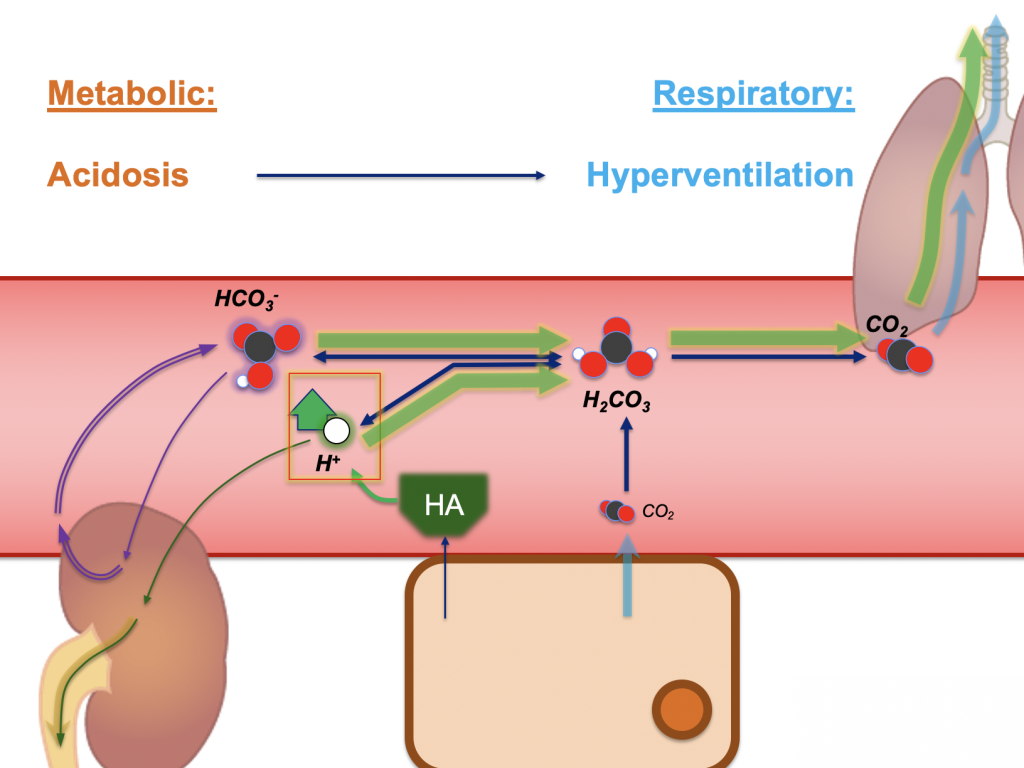In this AudioBrick from the Renal collection, we explore metabolic acidosis and alkalosis. The normal pH of the blood falls within a pretty narrow range (7.35-7.45). Anything outside that range—whether acidotic or alkalotic—can lead to serious problems and even death. These abnormal pH states, called acid-base disorders, are grouped into two big categories: those that are caused by abnormal amounts of acid or base in the blood (metabolic acid-base disorders) and those that are caused by abnormal amounts of carbon dioxide in the blood (respiratory acid-base disorders). Respiratory acid-base disorders are discussed in a separate brick; here, we will focus on metabolic acid-base disorders.
After listening, you should be able to:
- Define metabolic acidosis and alkalosis.
- Describe the normal serum anion gap and why it might increase.
- Describe the pathophysiology and common causes of metabolic acidosis with a high serum anion gap and with a normal anion gap.
- Outline how to diagnose and treat metabolic acidosis.
- Describe the pathophysiology and common causes of chloride-responsive metabolic alkalosis and chloride-resistant metabolic alkalosis.
- Outline how to diagnose and treat metabolic alkalosis.
If you haven’t subscribed to the Rx Bricks Podcast, we suggest you do it today!
Here’s a preview:
Head to the homepage for the Rx Bricks Podcast to hear the full episode and subscribe so that you’re notified when the next one drops.



